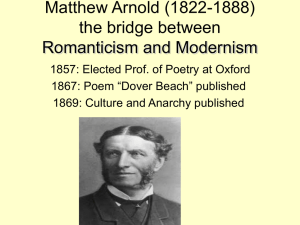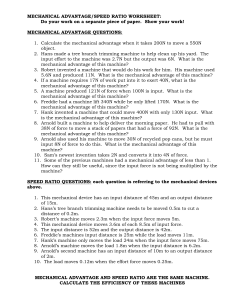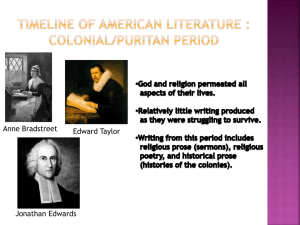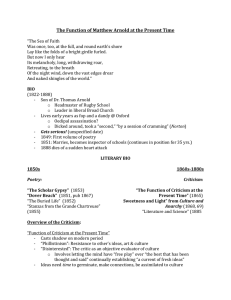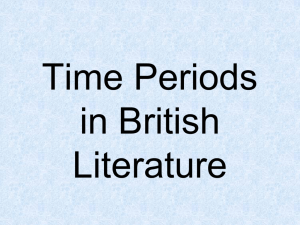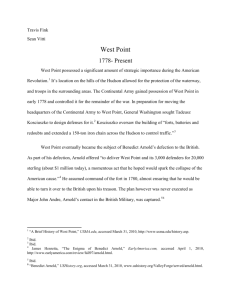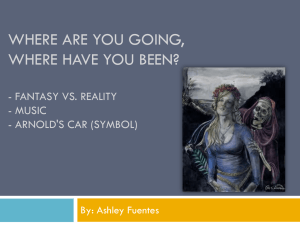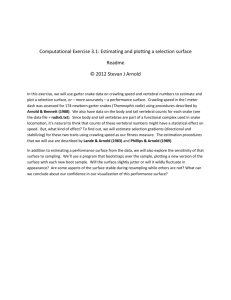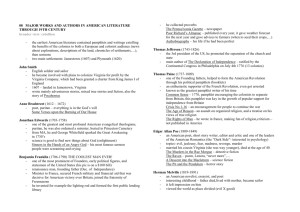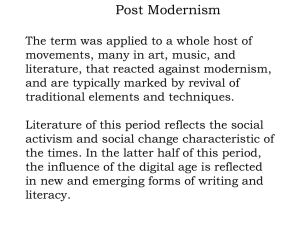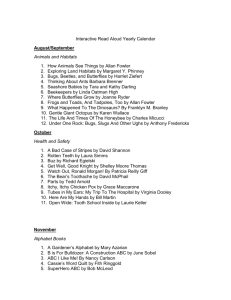Dover Beach
advertisement
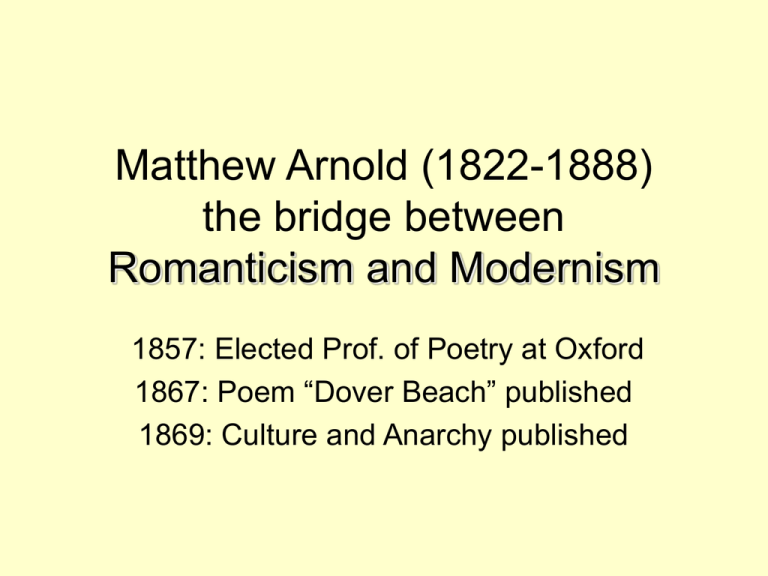
Matthew Arnold (1822-1888) the bridge between Romanticism and Modernism 1857: Elected Prof. of Poetry at Oxford 1867: Poem “Dover Beach” published 1869: Culture and Anarchy published Recurring Themes in Arnold • How is a full and enjoyable life to be lived in a modern industrial society? Arnold’s value can be expressed by Browning’s statement: • “The misapprehensiveness (mistake) of his age is exactly what a poet is sent to remedy”. Arnold’s Life (1). Being an eldest son of a clergyman, a headmaster of a Rugby school: earnestness (2). At Oxford, he dressed elegantly and colorfully; he attracted attention as a dandy [one of the dudes of literature] Achievements • An inspector of schools for 35 years since 1851; travels a lot • *Discuss Protestant middle classes (philistine): people need belief, but not in Christian, but in culture (an open-minded intelligence and a full awareness of man’s past) “Dover Beach” (1867) • Two Worlds: • (1). A nightmarish world • (2). Old World: religious verities have receded Conclusion: • Human love is the only defense for men Romanticism and Modernism • Romanticism traits: • How is a full and enjoyable life to be lived in a modern industrial society • Outdoor nature as settings: seashore or river or mountaintop provide something more than picturesque backdrops Romanticism and Modernism • Modernism traits: • The decline of religion • As a poet he usually records his own experiences, his own feelings of loneliness and isolation as a lover, his longing for a serenity that he cannot find, his melancholy sense of the passing of youth Arnold as a Poet and a Critic • Double role: as a poet—Arnold is a sick individual in a sick society • As a prose-writer—he is a healer of a sick society • He puts the hope in middle class and predicts that the world of the future would be a middle-class world
